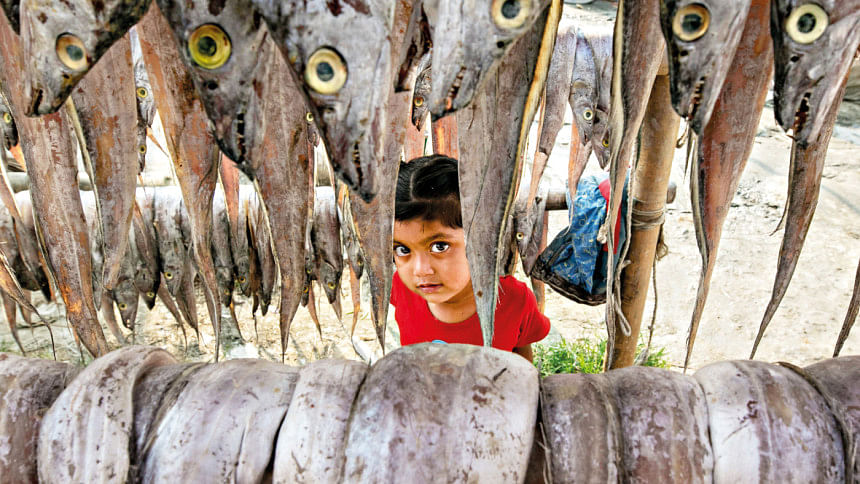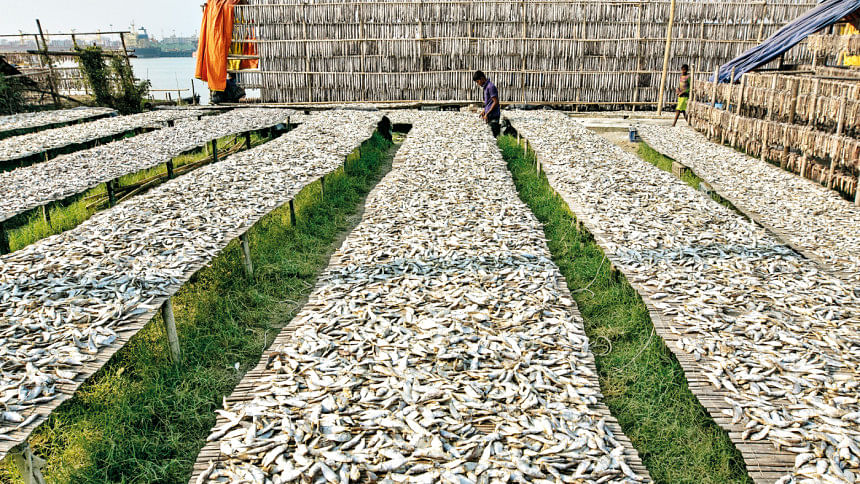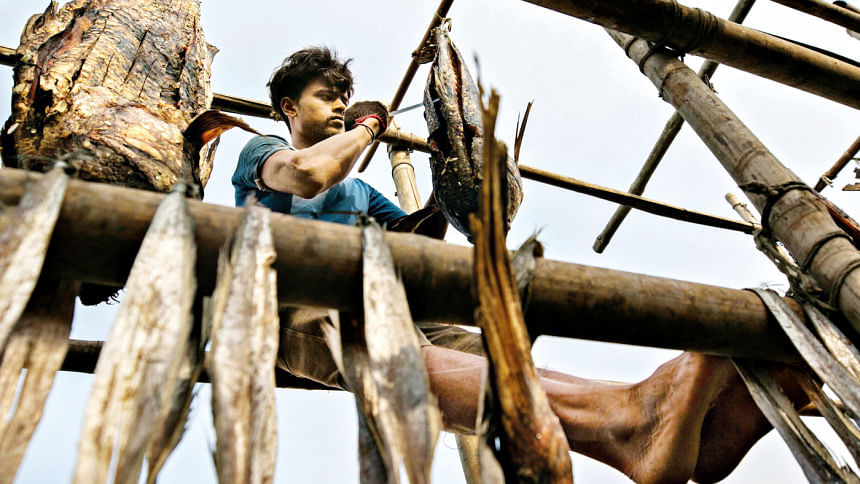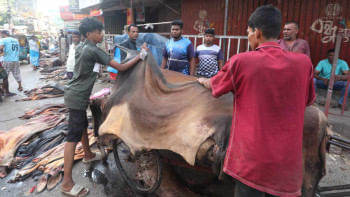Hope and relief for dried fish producers

The peak season for dried fish has kept producers in Chattogram busy at work, with collection, sorting, drying, piling, warming, packing and storing going on in full swing.
Due to favourable weather and high demand in the market, they are expecting a good share of profit this year.
According to the producers, the period between late Ashwin (October) and early Falgun (March) is considered as peak season for dried fish.

Take Bastuhara Khetchar. Located on the banks of the Karnaphuli, it is one of the major hubs for dried fish production. Visiting the area recently, this correspondent saw some makeshift structures erected in its fields to facilitate activity during these busy months. Around 20 species of fish, including Ribbon (Chhuri), Bombay duck (Loitta), Faissa, Poa and prawns were being dried in the area.
The area is buzzing with not only workers busy with the daily grind but also with children's laughter. In between playing, they also lend a hand to their parents' work. Meanwhile, toddlers rest in their mothers' lap while they continue to sort dried fish.
Md Jasim, a worker, said a kg of dried fish can be produced after drying around four kgs of raw fish.
According to the workers, the entire process requires seven to 10 days to be completed. Once the fishes are completely dried, producers send them to warehouses, mostly located in Asadganj, from where wholesalers buy them.
This correspondent found over a 100 karbari (producers) busy with work in their fields. Around 20 workers, both male and female, work under a karbari. However, there's a discrimination in wages between male and female workers.
For example, one Fatema Akter said she works for eight hours a day and receives Tk 350 for her work, while male worker Mainuddin said he works for 10 to 12 hours and gets Tk 600 a day.
Asked about this, Abdus Shukkur, president of Bastuhara Tower Dried Fish Producers and Marketers' Cooperative Association, claimed since male workers do the more labour-intensive work, they are paid more.
Meanwhile, workers said a good production mostly depends on the weather.
"A good quantity of dried fish got decomposed last year due to unfavourable weather in the peak season. The market rate fell as well, yielding me a loss of Tk 5 lakh," said Nurul Absar, a producer.

"But the rate is far better this year and so is the weather. I expect to make a good profit," he added.
Another producer Abdur Rahim informed that he incurred a loss of Tk 7 lakh last year due to the lower prices. "This year, I'm making a profit on every trip," he said.
Currently, a kg of chhuri is priced between Tk 700 and Tk 1,600 in the wholesale market, while a kg of loitta is sold between Tk 400 and Tk 650, a kg of faissa between Tk 450 and Tk 600 and a kg of prawn between Tk 700 and Tk 1,200.
"I have made a profit worth Tk 2 lakh so far this year, and expect to cover the previous year's losses with this," hoped Rahim.

 For all latest news, follow The Daily Star's Google News channel.
For all latest news, follow The Daily Star's Google News channel. 



Comments